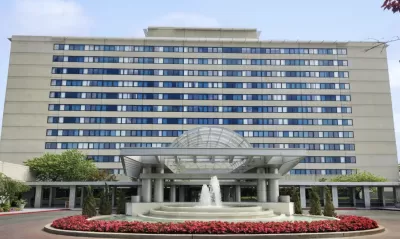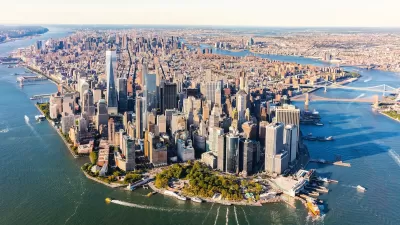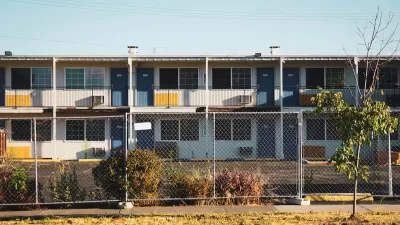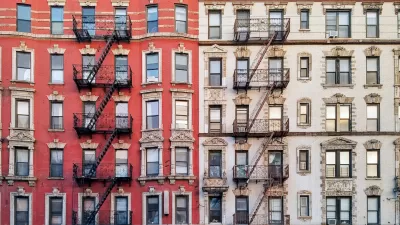A pandemic-era program designed to streamline the conversion of hotels into housing stalled, with the first project just now making its way through the pipeline.

A $150-million proposed conversion of a Hilton hotel near Kennedy International Airport is set to be the first project under the state’s hotel-to-housing conversion program, which was created during the tourism slump of the pandemic as one way to address the city’s growing housing crisis but, one year later, failed to lead to any new housing units.
Although the program was designed to help create more housing quickly, Mihir Zaveri explains in The New York Times, “Developers claimed it would not do enough to help them overcome onerous regulations, and that the $200 million attached to the program was not enough to compensate for development costs on a large scale.”
According to Zaveri, “Of the 318 total units, roughly 60 percent are slated for people struggling with homelessness. The remaining units would target lower-income households — those earning up to $107,000 for a family of four, for example — with rents of about $1,250 for a one-bedroom apartment and $1,500 for a two bedroom.”
The Hilton project is slated for completion in two years, during which the developers will make renovations to rooms, heating systems, and other components. “About $48 million of the $150 million will come from the state program, initially created in 2021 by the Housing Our Neighbors with Dignity Act.”
FULL STORY: New York City Will Finally Turn a Hotel Into Housing

Trump Administration Could Effectively End Housing Voucher Program
Federal officials are eyeing major cuts to the Section 8 program that helps millions of low-income households pay rent.

Planetizen Federal Action Tracker
A weekly monitor of how Trump’s orders and actions are impacting planners and planning in America.

Ken Jennings Launches Transit Web Series
The Jeopardy champ wants you to ride public transit.

Rebuilding Smarter: How LA County Is Guiding Fire-Ravaged Communities Toward Resilience
Los Angeles County is leading a coordinated effort to help fire-impacted communities rebuild with resilience by providing recovery resources, promoting fire-wise design, and aligning reconstruction with broader sustainability and climate goals.

When Borders Blur: Regional Collaboration in Action
As regional challenges outgrow city boundaries, “When Borders Blur” explores how cross-jurisdictional collaboration can drive smarter, more resilient urban planning, sharing real-world lessons from thriving partnerships across North America.

Philadelphia Is Expanding its Network of Roundabouts
Roundabouts are widely shown to decrease traffic speed, reduce congestion, and improve efficiency.
Urban Design for Planners 1: Software Tools
This six-course series explores essential urban design concepts using open source software and equips planners with the tools they need to participate fully in the urban design process.
Planning for Universal Design
Learn the tools for implementing Universal Design in planning regulations.
Ada County Highway District
Clanton & Associates, Inc.
Jessamine County Fiscal Court
Institute for Housing and Urban Development Studies (IHS)
City of Grandview
Harvard GSD Executive Education
Toledo-Lucas County Plan Commissions
Salt Lake City
NYU Wagner Graduate School of Public Service





























